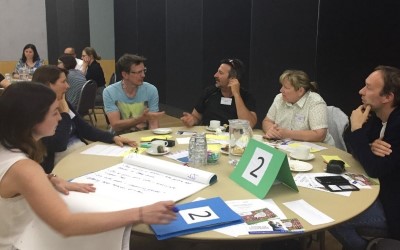Search

News & Events
Turners turn out for ENDIA StudyAustralia’s largest study into the causes of type 1 diabetes reached a significant milestone when it recruited its first family in Perth with three children recently.

News & Events
Have you got a copy of the new patient folder?We recently launched our new and improved Children’s Diabetes Centre patient folder so don’t forget to ask for your own hard copy next time you visit the diabetes clinic at Perth Children’s Hospital.

News & Events
To the moon and backNearly six return trips to the moon — 4,612,800km — that’s the incredible distance Telethon Kid Institute’s Children’s Diabetes Centre (CDC) staff have collectively travelled to deliver specialist care to kids living with diabetes in regional Western Australia over the past 28 years.

News & Events
Outpatient check-in checklistThe outpatient check-in process at Perth Children’s Hospital (PCH) differs to the way things were done at Princess Margaret Hospital.

News & Events
Centre's research in the spotlightThe Children’s Diabetes Centre showcased its progress in paediatric Type 1 Diabetes research at a JDRF Australia event held at The Kids Research Institute Australia recently.

News & Events
Kids connect at diabetes campKids living with Type 1 Diabetes got to hang out with super heroes and like-minded peers at the Diabetes WA and Princess Margaret Hospital (now known as Perth Children’s Hospital) kids’ camp in Bicton recently.

News & Events
Do you have the power?Volunteers are needed for the upcoming camp for 11 and 12-year-olds living with Type 1 Diabetes.

News & Events
Community Conversation wrap upThe Children's Diabetes Centre recently held its first-ever Community Conversation for the diabetes community to have their say on issues important to them.

News & Events
Patients hit for six by cricket visitPlayers from Perth Scorchers’ KFC Big Bash team paid an unexpected visit to cricket fans in PMH’s diabetes ward recently.

News & Events
Urgent device recallMedtronic has issued an urgent medical device recall of their MiniMed infusion sets for potentially over-delivering insulin.
